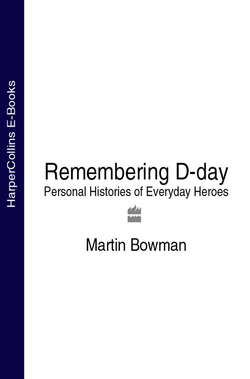Читать книгу Remembering D-day: Personal Histories of Everyday Heroes - Martin Bowman - Страница 64
Manfred Rommel, 15
Оглавлениеabout to celebrate his mother’s 50th birthday on 6 June.
‘Father had arrived from France on 4 June and we were planning a simple family lunch for my mother’s birthday. Speidel [Generalmajor Hans Speidel, Chief of Staff of the 7th Army in Normandy] kept saying he was not sure the landings had taken place and father should continue with his intention of speaking to Hitler about the strategy of repelling the invasion. My father disagreed with the other generals over this. He favoured a confrontation on the landing beaches while General Feldmarschall Gerd von Rundstedt wanted the panzer divisions to be kept back to the north of Paris. Father was very calm and cautious, as always. He agreed Speidel should call back in an hour but he began packing immediately. When the call came, Speidel told him the landing had happened. The Navy had told my father before he left France that no landing would be possible because the seas were too stormy. It had not been an easy decision for my father to return to Germany but he had believed the Navy. Now he was getting reports of Allied landings from all parts of the coast. He was calm but he was not happy that he had been at home when it all happened. He left immediately for the 500-mile journey back to Normandy to lead the men who had long expected the invasion, yet had been caught by surprize just the same. Mother took it completely in her stride. I talked to my father a lot about how the invasion happened. For a long time, everyone thought the Allies would land in the Pas-de-Calais because it was the nearest point to the English coast, only 25 miles away. On the other hand, the German fortifications were strongest there, so Normandy began to be considered the likeliest.
‘One thing everyone believed was that the Allies would first have to capture and hold a harbour. But, of course, they brought over their own mobile Mulberry harbour – a masterstroke by Churchill, which no one could ever have imagined.
‘My father was tremendously impressed with the organization and the imagination involved. It was a glorious battle for the Allies and, as a soldier, he admired them greatly. Father knew from North Africa that the British were good soldiers. But, as he said, Normandy showed him they were even better than he had presumed. He knew by then that Germany could not win the war. He had often discussed it with me. He said anyone with common sense could see that the only solution on the Western Front was to achieve a position in which to make peace. He would say: “Even if you have to give in, as long as you are strong, you can achieve peace.”’
Field Marshal Erwin Rommel had travelled back from the Normandy front to be with them and to give his wife a pair of grey shoes. At 7 am Generalmajor Hans Speidel, Chief of Staff of the 7th Army in Normandy, told them the long-feared invasion had started.
‘So it’s started then!’
Adolf Hitler’s unconcerned response after lunch on D-Day when the Fuhrer finally appeared and was told of the ‘invasion’.
Hitler held his first meeting about the landings at 14:00. It was not until nearly 17:00 that he finally gave permission to move just two armoured divisions and the counter-attack could not be mounted until the morning of 7 June, by which time the bridgehead was 30 hours old and it was too late. Hitler, and many of his generals, believed that Normandy was simply a diversion for a larger attack on Calais, a view he clung to until August 1944.
